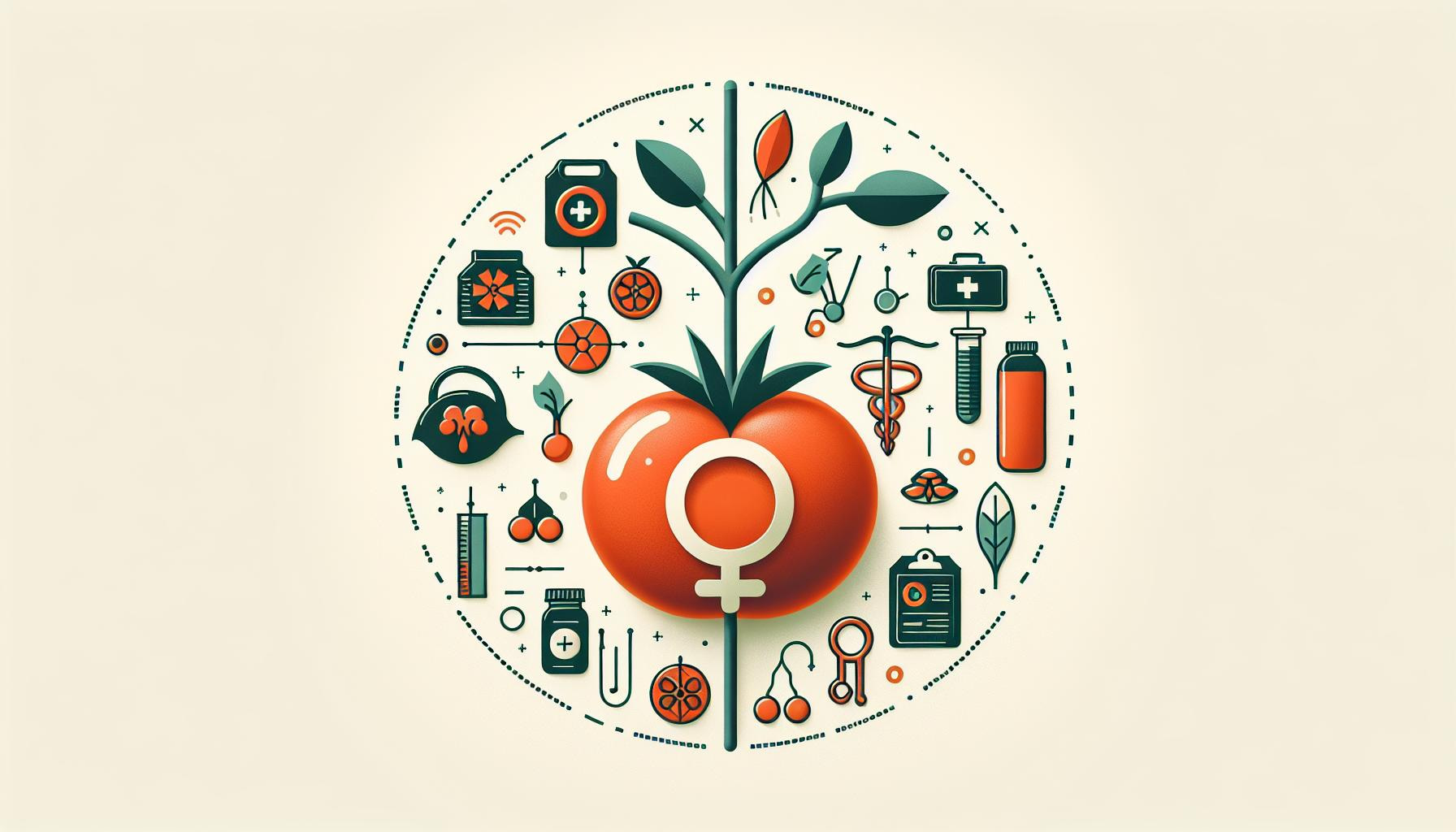Introduction
Is there a tangible connection between what’s on your dinner plate and prostate cancer? In the age of gluten-free this and vegan that, it’s easy to get caught up in the perennial parade of dietary fads. However, probing prostate health and nutrition reveals a significant dietary determinant distinct in the dilemma of prostate cancer. This article delves into impactful nutritional strategies aimed at mitigating the menace of prostate cancer.
Navigating Nutritional Necessities
Food, as they say, is fuel. But more than just filling up our tanks, food plays a vital role in our overall health and wellness, acting as our body’s defence against illnesses. In the battle against the beast called prostate cancer, some dietary soldiers stand at the forefront. Consuming cruciferous vegetables like broccoli, cauliflower, and kale, which are rich in sulforaphane, can potentially exert protective effects. Plus, the omnipresence of tomatoes in many dishes, rich with lycopene, a cancer-fighting antioxidant, is a blessing in disguise.
Everything in Moderation
Our mothers weren’t kidding when they told us to “eat our vegetables.” But it’s not just about embracing greens and grains. It’s also about kicking some food habits to the curb- or at least curbing them. Red meat and high-fat dairy products, while tantalising to the taste buds, may prove detrimental if consumed excessively, causing more harm than help in the prostate health department.
Dietary Dilemmas and Decision-Making
Stepping into the supermarket, you’re met with a myriad of mealtime choices. Should you go for the grass-fed beef or the tofu? Whole grain or white bread? Here, key dietary decisions can influence the prostate’s function. Opt for foods high in omega-3 fatty acids, such as fish, flaxseed, and walnuts. The fiber fantastic whole grains also play an essential supporting role in maintaining good health.
Balancing Act: Between Diet and Lifestyle
Good prostate health is a balancing act. It’s not just about what you eat, but also how you live. Regular exercise, maintaining a healthy weight, and saying a firm ‘no’ to nicotine are all part and parcel of the preventive package against prostate cancer.
Nimble with Nutritional Supplements
Remember, there’s rarely a magic pill for good health. While nutritional supplements might seem like a super shortcut, they can never replace the real deal – a healthy, balanced diet. However, some supplements can lend a helping hand. For instance, vitamin D, which is tricky to get enough of through food alone, has shown potential in preventing prostate cancer.
Navigating Nutritional Noise
The internet is a bustling buffet of nutritional advice, but not every piece satisfies our hunger for truth. The correlation between diet and prostate health exists, but it’s not a catch-all solution. Every person is unique, and dietary needs can drastically differ. Therefore, it’s crucial to consult with healthcare professionals before making any sweeping dietary alterations.
Conclusion
Taking a deep dive into nutritional strategies has shown that diet matters – and it matters more than we may have imagined. By adopting dietary habits that are beneficial to prostate health, we create a strong line of defense against prostate cancer. So, the next time you ponder over your shopping cart, choose to invest in your health. After all, you are what you eat.
Frequently Asked Questions
1. Does drinking alcohol increase the risk of prostate cancer?
Indeed, heavy drinking can contribute to prostate cancer risk, and it’s recommended to consume alcohol in moderation.
2. Can eating soy foods lower the chances of prostate cancer?
While not a silver bullet, plant-based proteins like soy products can form part of a balanced, nutrient-rich diet that supports prostate health.
3. Are there any particular fruits or vegetables that are effective in preventing prostate cancer?
Cruciferous vegetables such as broccoli, brussels sprouts, and cauliflower have shown potential. Brightly colored fruits and vegetables are also rich in antioxidants that may offer protection.
4. Is caffeinated coffee good or bad for prostate cancer risk?
While low to moderate coffee consumption is generally considered safe, the relationship between caffeine intake and prostate cancer risk isn’t clear-cut. As with all things, moderation is key.
5. How does obesity influence prostate cancer risk?
Excess body weight may complicate early detection and treatment of prostate cancer. Maintaining a healthy weight through a balanced diet and regular exercise is vital for overall health and helps reduce the risk of various diseases, including prostate cancer.

